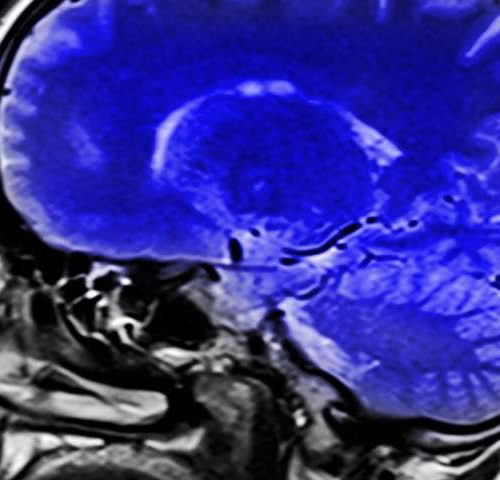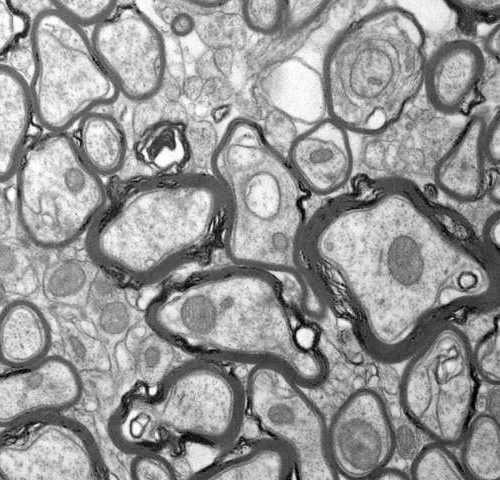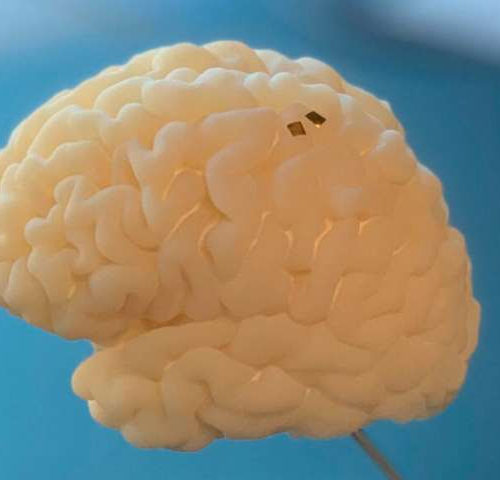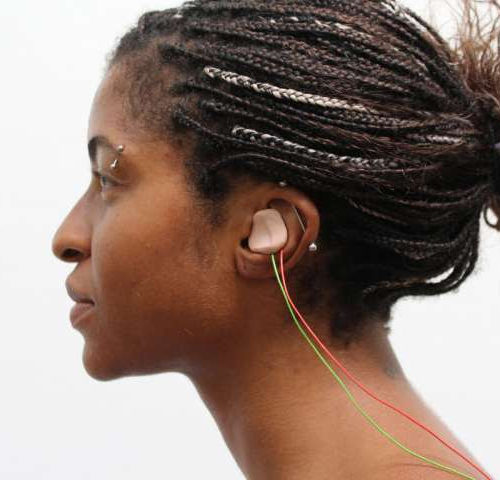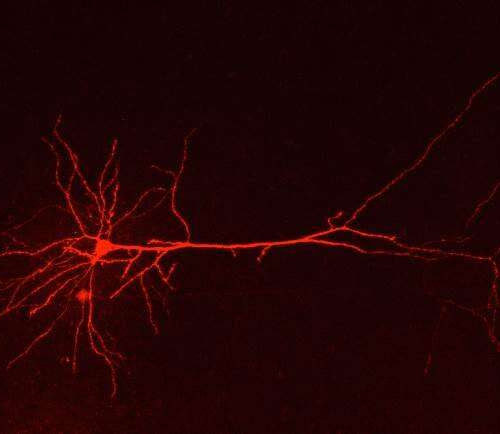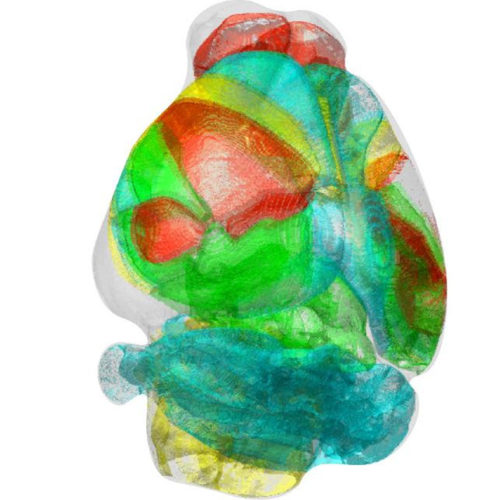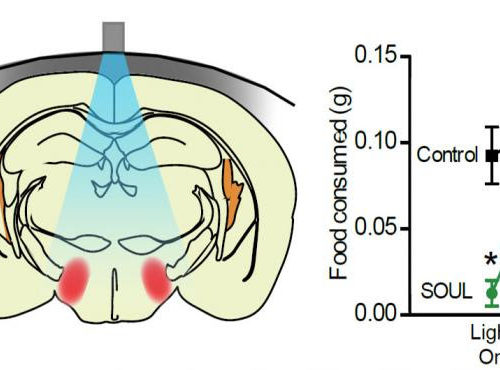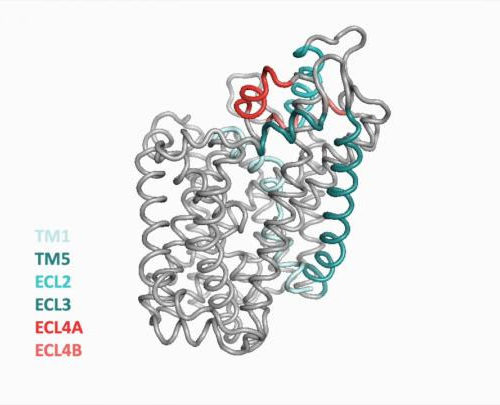by Toby Leigh, University of Plymouth Research carried out by a University academic has shed new light on the fundamentals of how, and why, we make the decisions we do. In two separate studies, UKRI Future Leader Fellow and Lecturer in Psychology, Dr. Elsa Fouragnan has used her expertise in functional magnetic resonance imaging (fMRI)...
Tag: <span>Neuroscientists</span>
Mechanisms identified to restore myelin sheaths after injury or in multiple sclerosis
by Universitaet Mainz Remyelination in the spinal cord after experimental focal degradation of myelin sheaths, simulating a lesion caused by multiple sclerosis. In young adults, the myelin sheath (dark rings) around axons (light gray circular structures) can be rebuilt, but this process is not fully efficient and its efficiency decreases sharply with age and as...
How thoughts could one day control electronic prostheses, wirelessly
by Tom Abate, Stanford University A current neural implant that uses wires to transmit information and receive power. Credit: Sergey Stavisky Stanford researchers have been working for years to advance a technology that could one day help people with paralysis regain use of their limbs, and enable amputees to use their thoughts to control prostheses...
Non-invasive nerve stimulation boosts learning of foreign language sounds
by University of Pittsburgh New research by neuroscientists at the University of Pittsburgh and University of California San Francisco (UCSF) revealed that a simple, earbud-like device developed at UCSF that imperceptibly stimulates a key nerve leading to the brain could significantly improve the wearer’s ability to learn the sounds of a new language. This device...
Genetic malfunction of brain astrocytes triggers migraine
by University of Zurich Neuroscientists of the University of Zurich shed a new light on the mechanisms responsible for familial migraine: They show that a genetic dysfunction in specific brain cells of the cingulate cortex area strongly influences head pain occurrence. Migraine is one of the most disabling disorders, affecting one in seven people and...
Unravelling complex brain networks with automated 3D neural mapping
Automated 3D brain imaging data analysis technology offers more reliable and standardized analysis of the spatial organization of complex neural circuits.- THE KOREA ADVANCED INSTITUTE OF SCIENCE AND TECHNOLOGY (KAIST) KAIST researchers developed a new algorithm for brain imaging data analysis that enables the precise and quantitative mapping of complex neural circuits onto a standardized...
Implant-free optogenetics minimizes brain damage during neuronal stimulation
A minimally invasive optogenetic technique that does not require brain implants successfully manipulated the activity of neurons in mice and monkeys, researchers report April 29th in the journal Neuron. The researchers first genetically engineered neurons to produce a newly developed, extremely light-sensitive protein called SOUL. They then demonstrated that it is possible to shine light...
Neuroscientists discover new structure of important protein in the brain
UNIVERSITY OF COPENHAGEN THE FACULTY OF HEALTH AND MEDICAL SCIENCES After five years of experimentation, researchers from the University of Copenhagen have succeeded in crystallising and mapping a novel conformation of LeuT, a bacterial protein that belongs to the same family of proteins as the brain’s so-called neurotransmitter transporters. These transporters are special proteins that...
We Know We’re Full Because Intestine’s Stretch Sensors Tell Us So
We commonly think a full stomach is what tells us to stop eating, but it may be that a stretched intestine plays an even bigger role in making us feel sated, according to new laboratory research led by UC San Francisco neuroscientist Zachary Knight, Ph.D. You may not believe it, especially heading into the holiday...
To Pay Attention, the Brain Uses Filters, Not a Spotlight
A brain circuit that suppresses distracting sensory information holds important clues about attention and other cognitive processes. We can pick out a conversation in a loud room, amid the rise and fall of other voices or the hum of an air conditioner. We can spot a set of keys in a sea of clutter, or...

